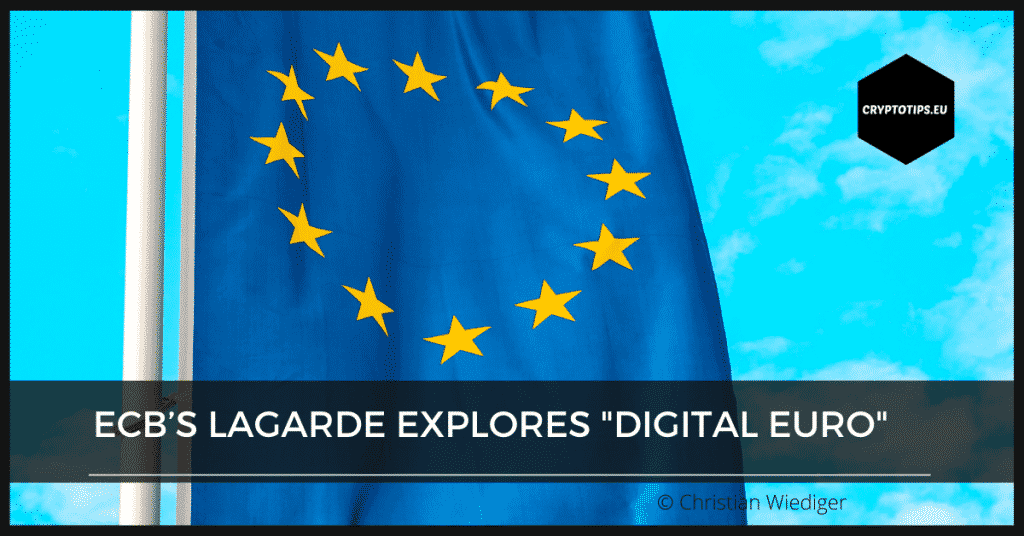ECB’s Lagarde Explores “Digital Euro”
Last Updated on 3 November 2020 by CryptoTips.eu
Accompanied by a video on Twitter, European Central Bank president Christine Lagarde launched a survey on the possibility of a digital Euro for the 27-member state bloc and asked the general public for their opinion. EU sources claimed it would take “between 18 months and three or four years” to see the digital Euro come to life.
We’ve started exploring the possibility of launching a digital euro. As Europeans are increasingly turning to digital in the ways they spend, save and invest, we should be prepared to issue a digital euro, if needed. I’m also keen to hear your views on it https://t.co/0ZuU2ZZgCp pic.twitter.com/CoY5sN7Yoz
— Christine Lagarde (@Lagarde) November 1, 2020
Christine Lagarde said:
We’ve started exploring the possibility of launching a digital euro. As Europeans are increasingly turning to digital in the ways they spend, save and invest, we should be prepared to issue a digital euro, if needed. I’m also keen to hear your views on it.
This is of course a long term project which was always widely expected to be launched. Certainly since the introduction of the Chinese Central Bank Digital Currency, known as the Digital Yuan, was rolled out earlier this year, it was clear that both the EU and the US would follow suit.
Whereas Federal Reserve president Powell made it clear a few weeks ago that his services are indeed looking into the matter, everybody has known for a long time that Lagarde was always a big fan of issuing a digital Euro, and her services have now cast the first stone.
Covid-19 accelerator
The timing of Lagarde’s action is of course adjacent to the move by Beijing earlier this year, but also the fact that Covid-19 has acted as an accelerator is not to be overlooked.
The pandemic boosted electronic payments as European citizens sought to avoid touching banknotes and coins over fears they might spread the coronavirus. Most striking example was Germany where consumers are this year expected to spend more money by card than in cash for the very first time.
Secondly, the fact that Facebook also announced to be working on their very own digital currency, known as Libra, has accelerated the Central Banks’ action in this matter.
